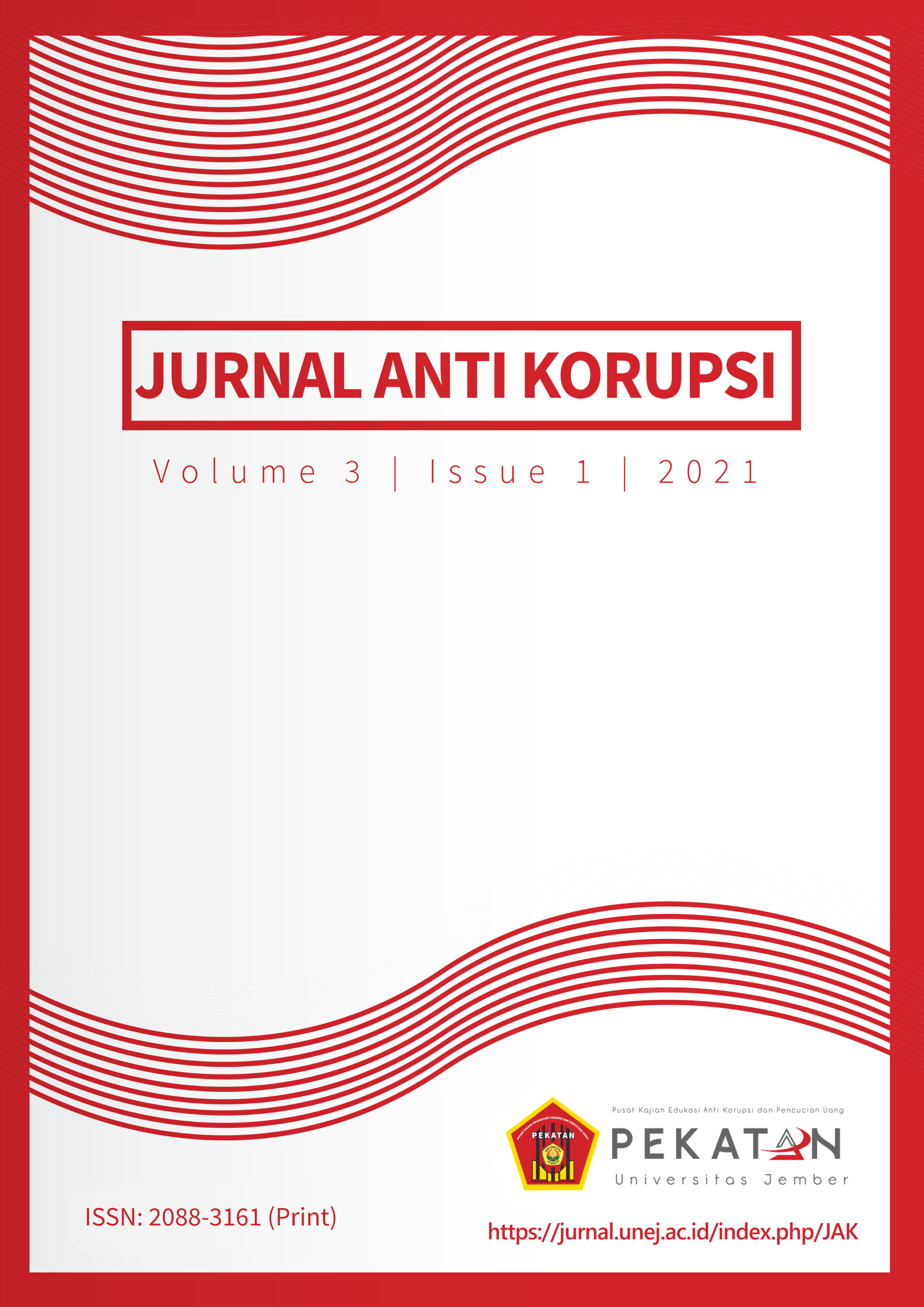Konsepsi Putusan Bebas dalam Tindak Pidana Korupsi yang terdapat Kerugian Negara
DOI:
https://doi.org/10.19184/jak.v3i1.27573Abstract
Article 32 paragraph (2) of the Anti-Corruption Law regulates the right to claim losses on state finances. The claim can be made even though there is an acquittal against the defendant. Since the Constitutional Court Decision No. 114/PUU-X/2012, an acquittal may be taken as a legal remedy in the form of a cassation. With the Constitutional Court's decision, the regulation regarding the process of claiming losses on state finances has experienced many conflicts, especially in terms of interpreting the contents of Article 32 paragraph (2) of the Anti-Corruption Law until the legal process. This matter will have an influence on aspects of legal certainty for the defendant, the institution of an acquittal institution itself which is interpreted to have the same meaning between acquittal (vrijpraak) and the acquittal of all lawsuits contained in the Corruption Act, and the aspect of guilt as the basis of reason. A compensation claim is filed until the scope of this ne bis in idem becomes part of the research object. This study uses a doctrinal legal research method using a statutory approach and a conceptual approach. The conclusion in this study is the acquittal of the decision before the Constitutional Court Decision No. 114/PUU-X/2012 provides an opportunity for the Public Prosecutor to take legal action in the form of cassation, in addition to being allowed to be a party to a claim for compensation due to state financial losses, although on the other hand the principle of ne bis in idem can be considered applicable. In the future application of this law.



